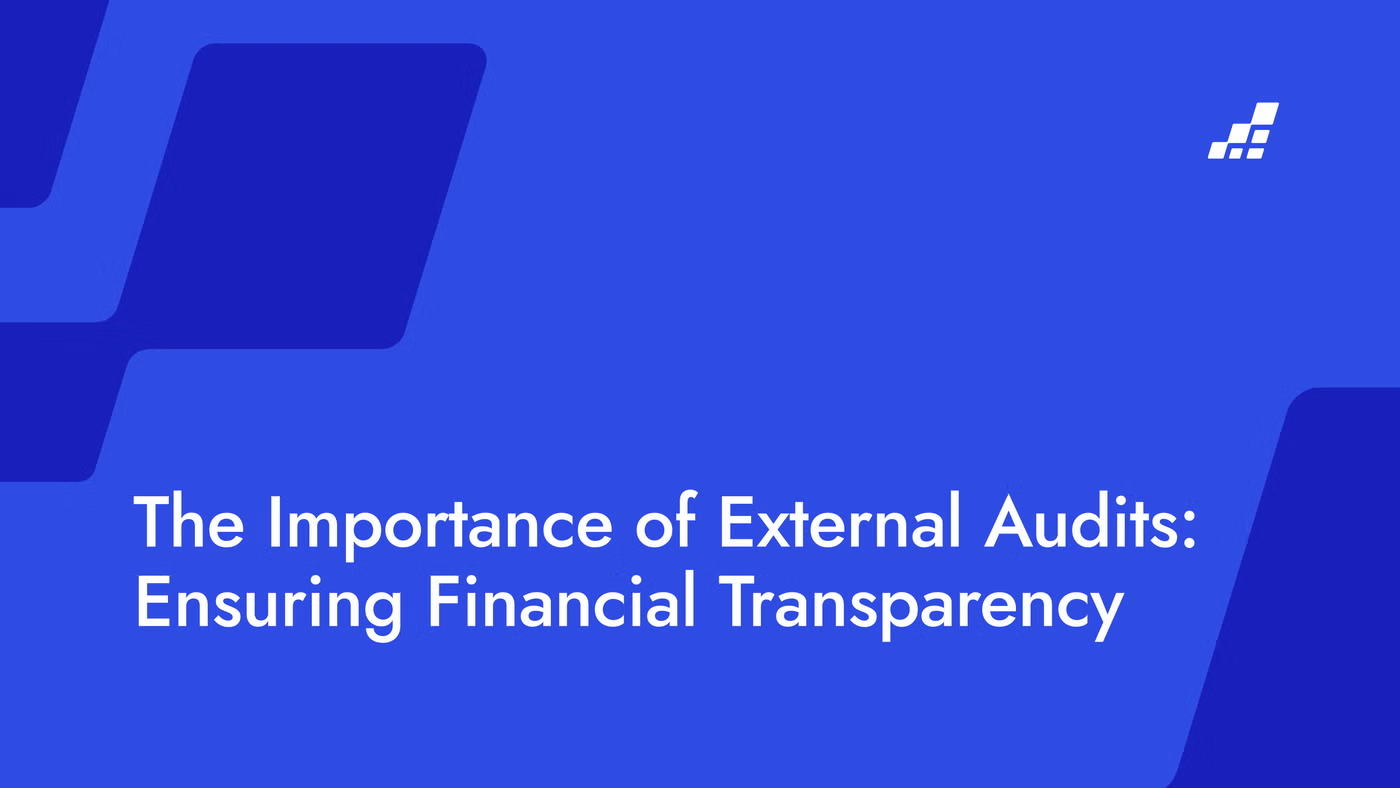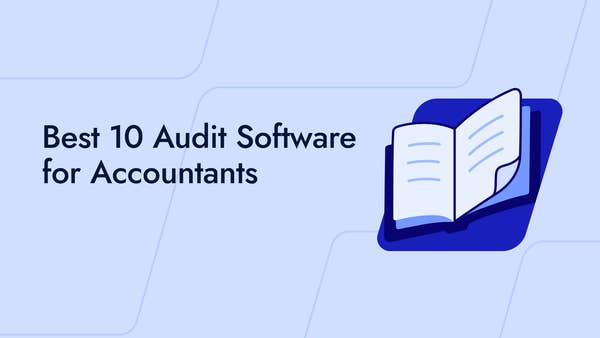- /
- Blog
The Importance of External Audits: Ensuring Financial Transparency

In today's fast-paced economy, where businesses strive for transparency and efficiency, external audits play a critical role in ensuring financial transparency.
These audits serve as guardians, helping organizations maintain credibility, trust, and accountability in their financial performance.
In this article, we will delve into the crucial role, process, and benefits of external audits. On top of this, we will explore how automation has transformed the audit process, bringing about significant advancements in efficiency and effectiveness for both junior and senior auditors.
The Role of External Audits
External audits play a critical role in validating the accuracy of financial statements, ensuring compliance with laws and regulations, and identifying potential financial discrepancies.
These audits are conducted by independent auditors who assess an organization's financial statements, internal controls, and risk management processes.
The primary aim of these audits is to establish the integrity of financial statements, providing assurance to stakeholders that accurate and impartial information is being presented.
External audits are essential in promoting financial transparency, improving corporate governance, and maintaining investor confidence.
The External Audit Process
External audits are a crucial part of financial reporting and assurance. It's all about making sure things are in good shape and keeping everyone accountable.
They involve thoroughly examining an organization's financial statements, internal control systems, and important information to give an independent assessment of the organization's financial well-being.
Planning and Risk Assessment
The external audit process kicks off with careful planning and risk assessment. This phase entails gaining insights into the organization's business operations, internal control systems, and financial reporting obligations.
The auditor evaluates the potential risks of significant errors or misrepresentation in the financial statements and devises an audit plan accordingly.
Gathering Evidence and Evaluation
Once the planning and risk assessment phase is complete, the auditor rolls up their sleeves and starts collecting evidence to back up their assessment of the organization's financial statements.
They dig into the organization's financial records, like bank statements, invoices, and receipts, making sure everything is on point and nothing's missing.
The auditor also checks out the organization's internal control systems to ensure they're up to the task of catching any mistakes or sneaky fraud attempts.
During the evaluation process, the auditor might spot some red flags or areas where the organization's financial statements or internal control systems could use some improvement.
When that happens, the auditor will have a chat with the management and let them know what they found. They'll also suggest some action steps to fix the problems and get things back on track.
Audit Opinion
Once the auditor has completed their evaluation, they will provide an audit opinion, which states whether the financial statements are free of material misstatement or not.
If the audit opinion is adverse, material weakness or significant deficiency is identified in the organization's financial statements. In such a case, the auditor will suggest remediation action to the organization.
The Importance of Financial Transparency
Financial transparency is a critical element in ensuring accountability and trust among stakeholders.
Investor Confidence
When companies are transparent about their financial performance, it builds investor confidence, makes it easier to access capital, and mitigates reputational risks. Financial transparency is also vital for public trust, regulatory compliance, and ethical business practices.
In addition, organizations that uphold financial transparency demonstrate a commitment to maintaining open and honest communication with stakeholders.
Fraud, Corruption, and Market Manipulation
Financial transparency is not just important for investors and stakeholders, but also for the overall health of the economy.
In today's globalized world, businesses operate on a global scale, and financial transparency is essential to ensure a level playing field for all market participants.
Transparency in financial reporting helps to prevent fraud, corruption, and market manipulation, which can have a significant impact on the economy as a whole.
Sustainable Development
Financial transparency is critical for sustainable development. It enables companies to identify and mitigate risks, such as environmental and social risks, that can have adverse impacts on their operations and reputation.
By being transparent about their financial performance, companies can develop strategies to address these risks and ensure long-term sustainability.
Financial transparency also plays a crucial role in promoting social responsibility. Companies that are transparent about their financial performance are more likely to be held accountable for their actions and decisions.
This accountability can lead to more responsible business practices, such as reducing carbon emissions, improving labor practices, and supporting local communities.
Challenges of External Audits
Despite the many benefits of external audits, there are also several challenges.
- Limited visibility: Auditors can only assess what they can see, hear, and measure, making it challenging to detect certain types of fraud that are carefully concealed or where tracks have been covered.
- Time-consuming process: External audits require extensive review of financial data and documentation, which can be time-consuming and resource-intensive, causing disruptions to normal business operations.
- Human error: While auditors are trained to identify potential financial irregularities, they are not infallible. Instances of auditors missing significant financial irregularities have occurred, resulting in financial losses for the organization and its stakeholders.
Best Practices for External Auditors
- Risk-based approach: Effective external audits employ a risk-based approach, focusing resources on areas with higher risk and significance, ensuring thorough examination while optimizing efficiency.
- Auditor independence: Maintaining auditor independence is crucial for unbiased assessments. Auditors must remain free from conflicts of interest and external influences to uphold the integrity and credibility of the audit process.
- Clear and concise reports: External audits should provide clear and concise reports that effectively communicate findings, recommendations, and observations. Well-structured reports enhance understanding and facilitate necessary actions by the organization.
- Open communication: Open and transparent communication between the auditor and the organization being audited is vital. It fosters a collaborative environment, allowing for the exchange of information, clarification of concerns, and addressing any potential issues that arise during the audit.
- Embracing technology: Auditors should embrace technological advancements to enhance the efficiency and effectiveness of external audits. Utilizing automated tools for data analysis, AI-powered systems for risk assessment, and digital platforms for document management can streamline the audit process, reduce human error, and improve accuracy.
How Automation Transformed External Audit
Technology has revolutionized the audit process, enabling auditors to be more efficient and effective. Automation has streamlined the audit process, providing quick and accurate data analysis, which eliminates the need for labor-intensive manual processes.
With automation, taking a data-driven approach to external audits is more effective, enabling auditors to detect potential anomalies efficiently.
Automation has also enabled remote audits, minimizing disruption to organizations and auditors alike. This technology has made external audits increasingly accessible to small and medium-sized businesses that were previously unable to afford them.
DataSnipper’s Role in External Audit
DataSnipper is an innovative auditing software that plays a vital role in streamlining and enhancing the audit process. By utilizing automation and advanced data analysis techniques,
DataSnipper empowers auditors to efficiently analyze large volumes of financial data, identify patterns, anomalies, and potential risks.
Check out DataSnipper’s customer page to discover what users are saying about the platform’s capabilities.
Calculate your ROI here.
.png?width=600&quality=70&format=auto&crop=16%3A9)
.png?width=600&quality=70&format=auto&crop=16%3A9)
